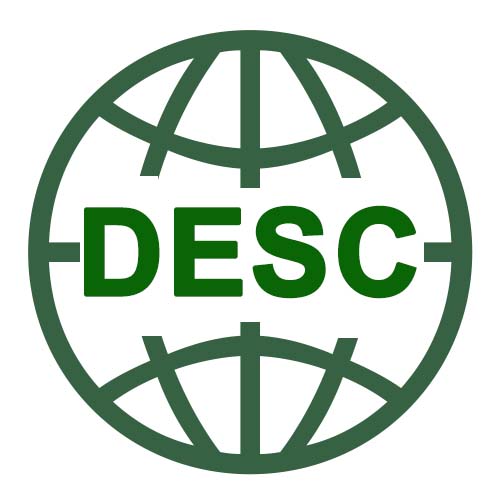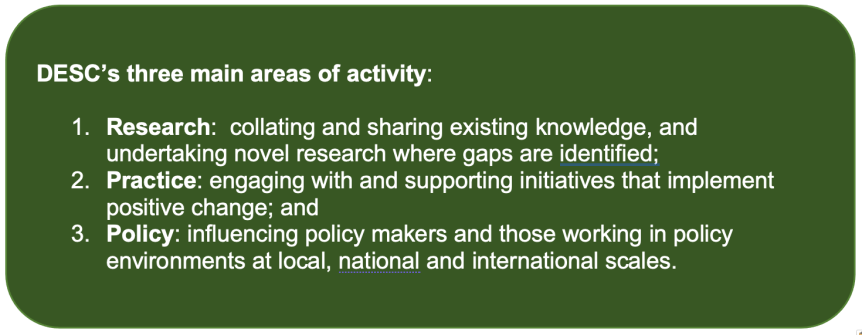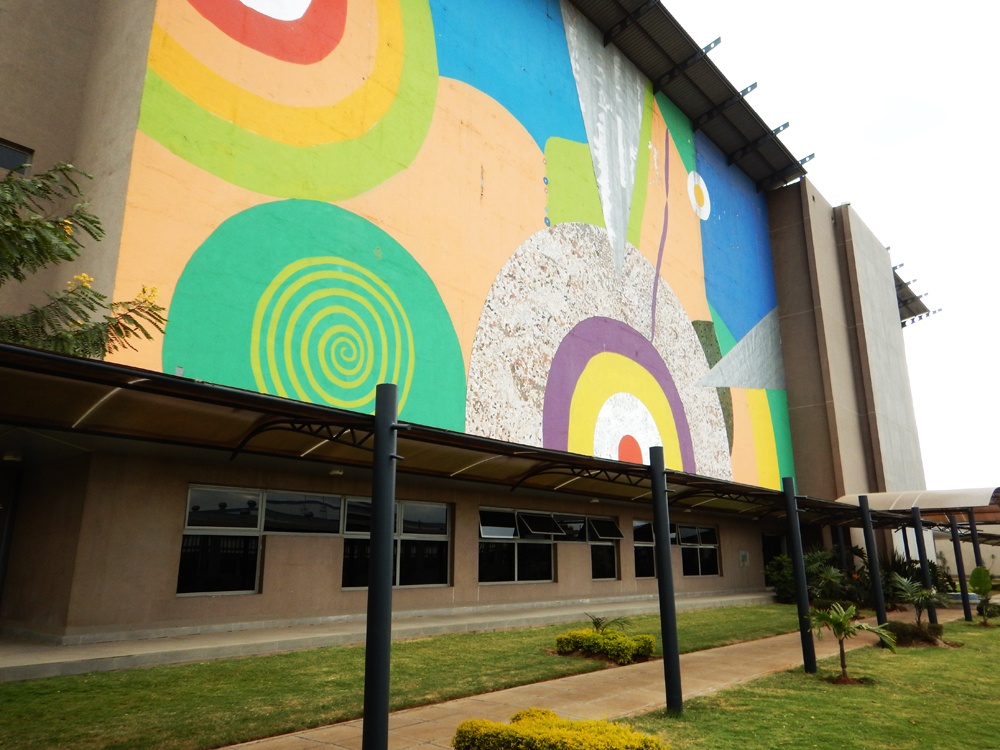
Do please use the auto-translate button to the right to read our site in your own language
For too long, research on the inter-relationships between digital technologies and the physical environment has been partitioned into neat areas and specialisms that have prevented important things being said holistically about its impact. This has meant that the digital technology sector has invariably been able to make unfounded claims about its positive benefits for the environment and its contributions to the so-called Sustainable Development Goals. The UNESCO Chair in ICT4D is now bringing together researchers from across the world to build a coalition of excellence to unravel the complexities of these relationships and make rigorous policy recommendations to ensure that such technologies are used wisely in the interests of the human community and planet.
Professor Tim Unwin CMG, Chairholder, UNESCO Chair in ICT4D

An invitation
This is an invitation to researchers and practitioners from all relevant disciplines and all personal backgrounds to work together in a coalition that will enhance our holistic understanding of the inter-relationships between digital technologies and the physical environment. DESC’s core principles are summarised in its conceptual framework, governance structure, and ethical guidance. All interested parties are invited to submit short expressions of interest through the UNESCO Chair in ICT4D’s contact page.
The challenge(s)
There has been extensive research on many aspects of the environmental impact of digital technologies, but much of this has been discipline specific, and as yet there remains no overarching holistic model or understanding of these impacts (see here for some examples of current initiatives). Worse still, studies and initiatives that have claimed to do so, through for example focusing on reducing CO2 emissions, have been misleading because they fail sufficiently to take into account the wider environmental impact of alternative provision of the essential energy to power digital tech. Five particular issues are of partocular concern (see also Tim Unwin’s Digital Technologies and Climate Change , 2020):
- A failure to incorporate the environmental impact of satellites in space, which is often treated as a global commons that can be filled with waste, much as oceans once were;
- Insufficient attention being paid to the anti-sustainable business models of many digital tech initiatives and corporate practices;
- A failure sufficiently to account for the environmental consumption of many new digital initiatives;
- An excessive focus on carbon imprint alone; and
- Using inappropriate and outdated models of environmental impact assessment.

Doing things differently
This initiative from the UNESCO Chair in ICT4D is bringing together individuals and organisations from many different backgrounds (see below) who are committed to doing things differently. We are adopting a neutral and open stance as far as we can, but believe in making as much high-quality information available as possible emphasising both the positive and negative impacts of different digital technologies on the environment, and making this available freely for all (see DESC’s conceptual framework).
Phase 1 of the work in 2021-2022 is to:
- Create a clear partnership framework for engagement;
- Develop a resource base featuring as many existing relevant initiatives as possible together with details of their key publications that we will make available through the UNESCO Chair in ICT4D website;
- Convene a series of workshops in different parts of the world and with relevant stakeholders to identify the parameters that should be included in a holistic model (for an example of work in convening such workshops on a different topic in 2020, see Education for the most marginalised post-COVID-19); and
- Identify areas where novel and further research is needed to quantify the model parameters.
Phase 2 in 2022 will:
- Facilitate working groups of researchers and practitioners to develop research proposals and funding applications to relevant bodies so as to undertake the research identified as being essential for quantifying the model’s parameters; and
- Initiate a series of publications and policy reports.
Phase 3 from 2023-25 will:
- Co-ordinate and support research activities initiated during Phase 2; and
- Culminate in a major report in 2025 providing full details of the model together with policy recommendations based upon it.
What makes DESC special?
DESC is different from previous initiatives because of the ways in which it integrates four main characteristics with three types of activity:


Why you need to be involved
This initiative is fundamentally multi-disciplinary, cross-sectoral, international and policy oriented. It must engage academics, companies, civil society organisations, international organisations and governments if it is to have the scope to be able to address the big issues necessary for crafting an appropriate holistic system model. Amongst academics it wishes to engage those committed to working across boundaries from within many different disciplines including biologists, chemists, climatologists, computer scientists, economists, engineers, geographers, lawyers, physicists and many more. It requires the engagement of companies of all sizes, and in all business sectors, especially those with a track record of being concerned about environmental agendas – and there are many that are. Among civil society organisations, it welcomes all who have experience in environmental agendas, particularly those working on digital tech, and also those with experience at shaping effective policy campaigns at the interface between technology and the environment. It also needs to engage with international organisations and governments that are committed to working in the interests of their citizens to ensure that digital technologies really are used appropriately in the long-term interests of their citizens and planet earth.
If you are at all interested in being involved in this coalition – or even if you think there is no need for such a new initiative – we would love to hear from you. Please get in touch through our contact page (or directly by e-mail) We very much look forward to hearing from you.

Links
Please follow these links for access to our most relevant pages:
- Coalition Members and Partners
- Governance Structure and Ethical Guidelines
- Working Groups
- Existing initiatives upon which we are building
- Interesting stories
- Presentations and publications
- Resources:
- YouthDESC
- Agendas and notes from coalition meetings (usually held quarterly)
Last updated 15th January 2022
